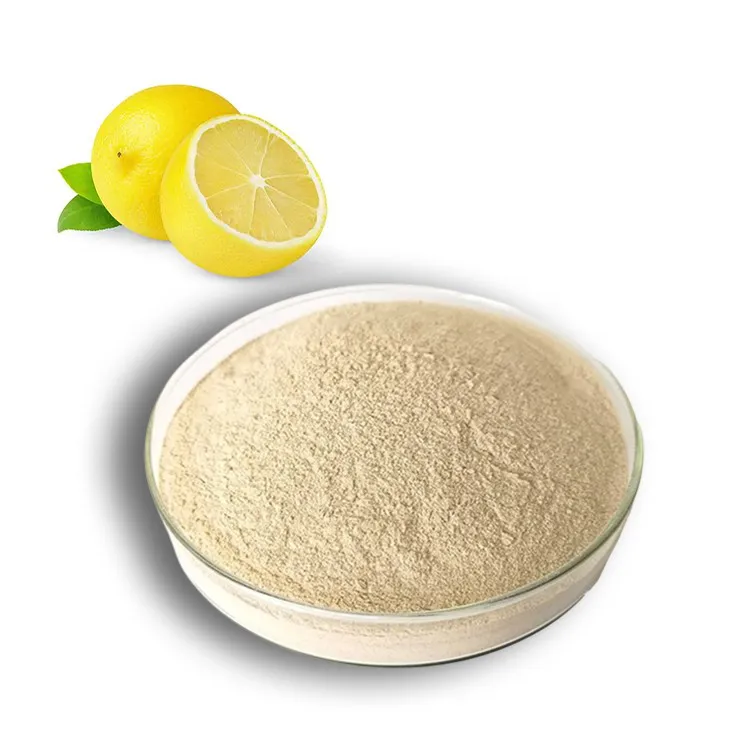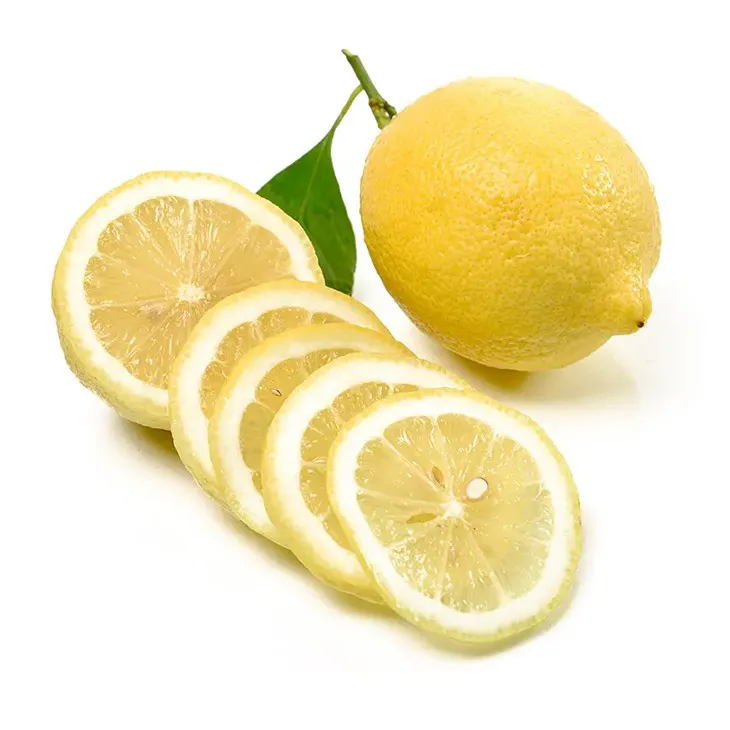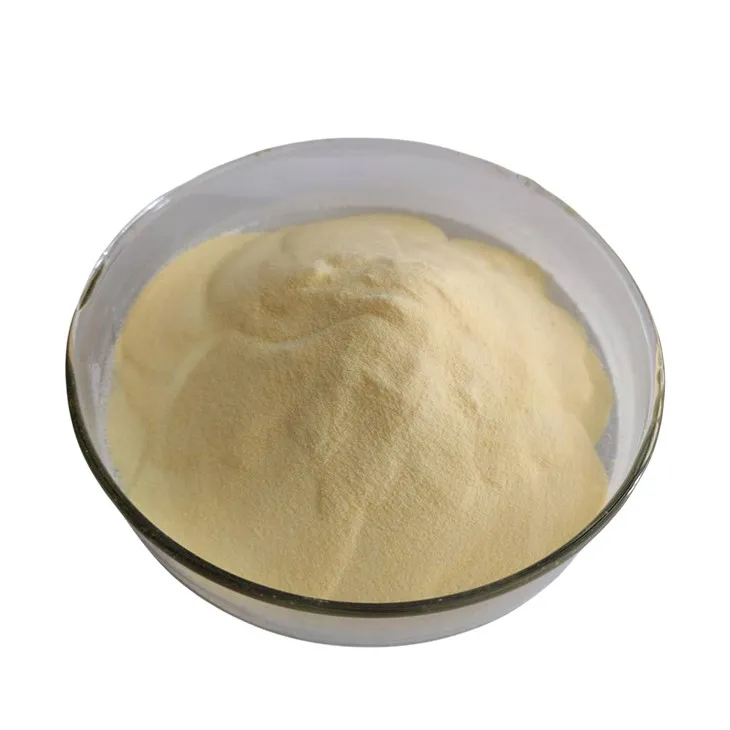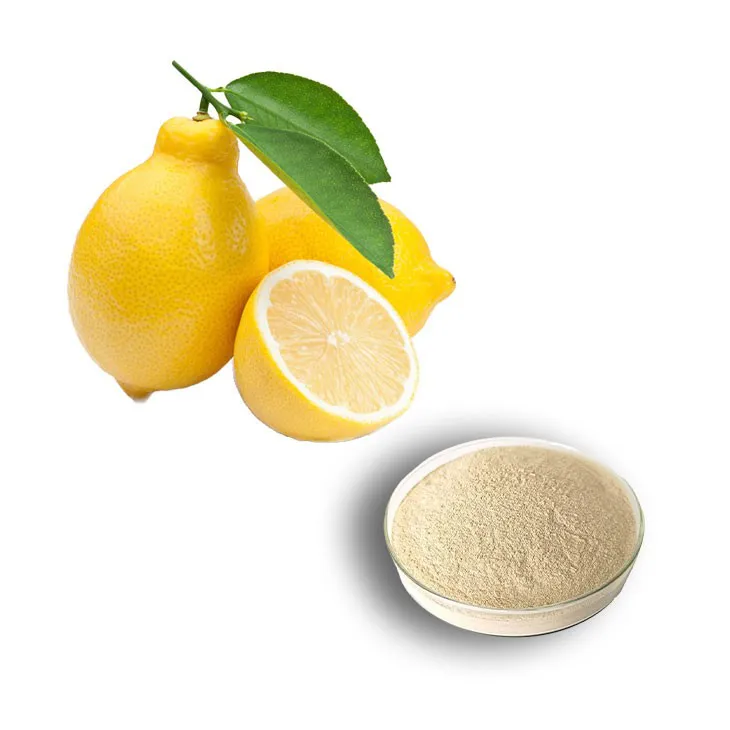- 0086-571-85302990
- sales@greenskybio.com
Lemon extract in Trinidad and Tobago.
2024-12-10

1. Introduction to Lemon Extracts in Trinidad and Tobago
Trinidad and Tobago, a twin - island nation in the Caribbean, is known for its rich biodiversity and natural resources. Among these, the Lemon Extracts produced in this region are a true hidden gem in the world of natural products. The country's geographical location endows it with a tropical climate, which is ideal for lemon cultivation. The warm temperatures, ample sunlight, and regular rainfall create an environment where lemons can thrive. Coupled with the fertile soil, which is rich in nutrients, the lemons grown here are of exceptional quality.

2. The Production Process of Lemon Extracts
The production of lemon extracts in Trinidad and Tobago is a meticulous process. First, the ripe lemons are carefully harvested from the orchards. These lemons are then washed thoroughly to remove any dirt or impurities. After that, the peel of the lemon, which contains a significant amount of the essential oils and flavor compounds, is separated from the pulp. There are different methods for extracting the essence from the lemon peel, such as cold - pressing or steam distillation.
Cold - pressing: In this method, the lemon peel is mechanically pressed to release the oils. This process is relatively gentle and helps to preserve the natural aroma and flavor of the lemon. The resulting liquid contains not only the essential oils but also some water - soluble compounds, which contribute to the overall complexity of the lemon extract.
Steam distillation: Here, steam is passed through the lemon peel. The heat causes the essential oils and other volatile compounds to vaporize. These vapors are then condensed back into a liquid form, which is the lemon extract. This method is effective in separating the pure essential oils from the peel, but it may require more sophisticated equipment.

3. Aroma and Flavor Profile
The lemon extracts from Trinidad and Tobago possess a distinct aroma and flavor profile that makes them stand out in the market. The aroma is a refreshing blend of citrusy notes, with a hint of sweetness and a touch of earthiness. It is this unique combination that gives the extracts their characteristic smell. When it comes to the flavor, it is a complex mix of tartness, sweetness, and a subtle bitterness. The high - quality lemons used in the extraction process contribute to a well - balanced flavor that is both intense and pleasant.
These unique flavor and aroma characteristics are due to the specific variety of lemons grown in Trinidad and Tobago, as well as the local environmental conditions. The terroir, which includes factors such as soil type, climate, and altitude, plays an important role in shaping the final product. For example, the minerals present in the soil may influence the flavor of the lemons, and in turn, the extracts made from them.

4. Traditional Medicinal Uses
In the traditional medicine of Trinidad and Tobago, lemon extracts have been used for centuries. One of the most common uses is for soothing digestive problems. The natural acids present in the lemon extract can help stimulate the production of digestive juices, which aids in the digestion process. It can also relieve symptoms such as indigestion, bloating, and heartburn.
Another important use is in relieving cold symptoms. The antibacterial and antiviral properties of the lemon extract can help fight off the common cold virus. It is often used in the form of a warm drink, combined with honey and other herbs, to soothe a sore throat, reduce cough, and relieve nasal congestion.
Furthermore, lemon extracts are believed to have anti - inflammatory properties. They can be used topically to reduce inflammation in skin conditions such as acne or eczema. The antioxidants present in the extract also contribute to overall skin health, helping to protect the skin from damage caused by free radicals.

5. International Trade Potential
In today's global market, the demand for natural and organic products is on the rise. This presents a significant opportunity for Trinidad and Tobago's lemon extracts. As consumers become more health - conscious and environmentally aware, they are increasingly seeking out products that are derived from natural sources.
Trinidad and Tobago's lemon extracts have several advantages in the international market. Firstly, their unique flavor and aroma make them a desirable ingredient for the food and beverage industry. They can be used in a variety of products, such as baked goods, beverages, and confectionery, to add a natural lemon flavor. Secondly, their traditional medicinal uses give them an edge in the health and wellness market. They can be formulated into dietary supplements, herbal remedies, or natural skincare products.
However, there are also challenges to be faced in international trade. One of the main challenges is meeting the strict quality and safety standards of different countries. This requires investment in quality control measures, such as proper testing and certification. Another challenge is competition from other lemon - producing regions. To stay competitive, Trinidad and Tobago needs to focus on promoting the unique qualities of its lemon extracts and building a strong brand image.
6. Use in Aromatherapy
Aromatherapy is a holistic approach that uses essential oils and other aromatic substances to promote physical and mental well - being. The lemon extracts from Trinidad and Tobago are well - suited for use in aromatherapy due to their refreshing scent.
The refreshing scent of the lemon extract can have a positive impact on the mind and body. It can help reduce stress and anxiety by promoting relaxation. When the aroma is inhaled, it can stimulate the olfactory system, which in turn sends signals to the brain. These signals can trigger the release of neurotransmitters such as serotonin, which is associated with feelings of well - being and relaxation.
In addition to stress relief, lemon extract aromatherapy can also improve mood and mental clarity. It can be used in diffusers, massage oils, or bath products to create a relaxing and rejuvenating atmosphere. For example, adding a few drops of lemon extract to a warm bath can not only provide a pleasant aroma but also help soothe tired muscles and relieve tension.
7. Conclusion
In conclusion, lemon extracts from Trinidad and Tobago are a valuable natural product with a wide range of applications. Their unique aroma, flavor, and medicinal properties make them a sought - after ingredient in various industries. With the increasing global demand for natural and organic products, there is great potential for Trinidad and Tobago to develop its lemon extract industry and increase its exports. However, to fully realize this potential, it is necessary to address the challenges in international trade, such as quality control and competition. By doing so, Trinidad and Tobago can share its hidden gem with the world and contribute to the growth of the global natural products market.
FAQ:
1. What makes lemon extracts from Trinidad and Tobago special?
The favorable climate and fertile soil in Trinidad and Tobago contribute to the growth of high - quality lemons for making the extracts. Also, they have a distinct aroma and flavor profile that differentiates them from others.
2. How are lemon extracts from Trinidad and Tobago used in traditional medicine?
In traditional Trinidadian and Tobagonian medicine, these lemon extracts are often used to soothe digestive problems and relieve cold symptoms.
3. Why could lemon extracts from Trinidad and Tobago be a valuable export commodity?
Globally, the demand for natural and organic products is increasing. Since these lemon extracts are natural products, they have the potential to be a valuable export commodity.
4. What role do lemon extracts from Trinidad and Tobago play in aromatherapy?
In the field of aromatherapy, the refreshing scent of these lemon extracts can help reduce stress and anxiety.
5. Are there any challenges in promoting lemon extracts from Trinidad and Tobago as an export?
There could be various challenges. For example, meeting international quality and safety standards, establishing reliable distribution channels, and competing with other lemon - producing regions in terms of price and marketing. However, with proper strategies, these challenges can be overcome.
6. How can one ensure the quality of lemon extracts from Trinidad and Tobago?
Quality can be ensured through proper cultivation practices of the lemons, using appropriate extraction methods, and following strict quality control measures during processing and packaging.
Related literature
- Lemon Cultivation in Tropical Climates: A Case Study of Trinidad and Tobago"
- "The Medicinal Properties of Trinidad and Tobago's Native Plants, including Lemon Extracts"
- "Trinidad and Tobago's Agricultural Exports: The Potential of Lemon Extracts"
- ▶ Hesperidin
- ▶ Citrus Bioflavonoids
- ▶ Plant Extract
- ▶ lycopene
- ▶ Diosmin
- ▶ Grape seed extract
- ▶ Sea buckthorn Juice Powder
- ▶ Fruit Juice Powder
- ▶ Hops Extract
- ▶ Artichoke Extract
- ▶ Mushroom extract
- ▶ Astaxanthin
- ▶ Green Tea Extract
- ▶ Curcumin
- ▶ Horse Chestnut Extract
- ▶ Other Product
- ▶ Boswellia Serrata Extract
- ▶ Resveratrol
- ▶ Marigold Extract
- ▶ Grape Leaf Extract
- ▶ New Product
- ▶ Aminolevulinic acid
- ▶ Cranberry Extract
- ▶ Red Yeast Rice
- ▶ Red Wine Extract
-
Lotus leaf extract
2024-12-10
-
Ivy Extract
2024-12-10
-
Mulberry Extract
2024-12-10
-
Hops Extract
2024-12-10
-
Fig Extract
2024-12-10
-
Grapefruit Seed Extract Powder
2024-12-10
-
Yohimbine Bark Extract
2024-12-10
-
Black Pepper Extract
2024-12-10
-
Saponin Extract
2024-12-10
-
Lavender Extract
2024-12-10





















